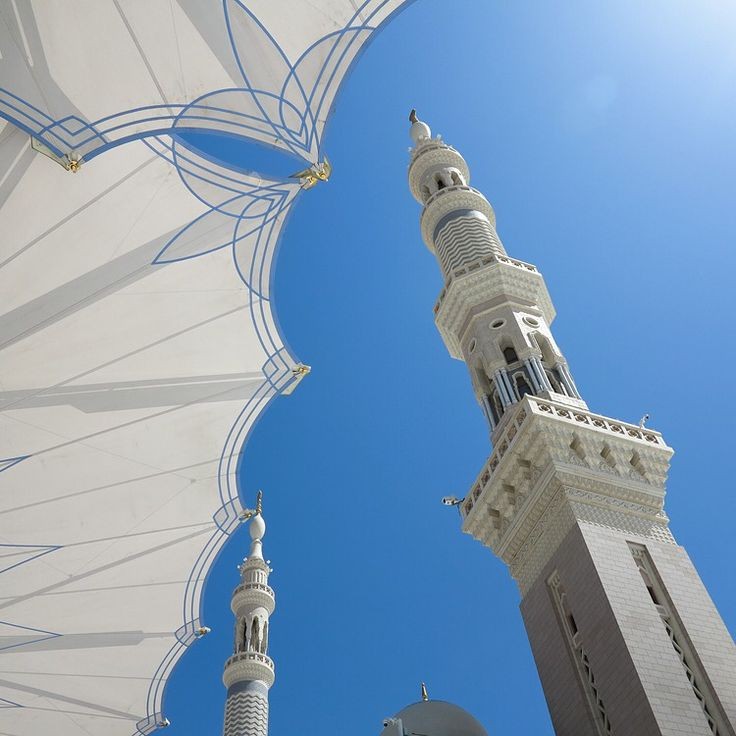The first ten days of Dhul-Hijjah, the 12th month of the Islamic calendar, hold a special place in the heart of Islam. These ten days are greatly beloved by Allah (SWT); and they have preference over all other days of the year, as they are ripe with blessings and endless rewards.
The Prophet Muhammad (peace be upon him) encouraged us to make the most of these blessed ten days by engaging in righteous deeds. It is one of the greatest favors of Allah (SWT) to grant His servants multiple opportunities to increase their rewards in this world and the Hereafter, which include the first ten days of Dhul-Hijjah.
These blessed ten days have enormous virtues associated with them, some of which are as follows:
1. Allah (SWT) Swears by it in the Holy Quran
Allah (SWT) takes an oath upon things in order to showcase their importance and significance. In the Quran, Allah (SWT) has sworn upon these blessed ten days of Dhul-Hijjah in Surah Al-Fajr:
By the dawn and by the ten nights… (Quran 89:1-2)
This oath authenticates the excellence of these nights in the sight of Allah (SWT); and the great value He attaches to these days.
2. Dhul-Hijjah is a Month of Sacredness and Piety
Allah (SWT) has deemed four months, out of the twelve months in the Islamic Calendar, to be sacred months. These include Rajab and the three consecutive months of Dhul-Qadah, Dhul-Hijjah, and Muharram. Allah (SWT) states in the Holy Quran:
Indeed, the number of months with Allah is twelve [lunar] months in the register of Allah [from] the day He created the heavens and the earth; of these, four are sacred. (Quran 9:36)
3. Best Days to Perform Righteous Deeds
Righteous deeds that are carried out in these ten days are magnified in their blessings. Allah (SWT) is greatly pleased with His servants who engage in Ibadah and righteous acts in this particular period of time and promises exalted rewards, mercy, and forgiveness.
Ibn ‘Abbas reported that the Prophet (peace be upon him) said:
There are no days in which righteous deeds are more beloved to Allah than these 10 days.
The people asked:
“Not even jihad for the sake of Allah?”
He said:
Not even jihad for the sake of Allah, except in the case of a man who went out to fight giving himself and his wealth up for the cause, and came back with nothing. (Sahih Bukhari 2:457)
4. A combination of the Prime Acts of Worship
A distinguishing factor of Dhul-Hijjah, amongst the other Islamic months, is essentially the combination of the primary pillars of Islam- all in one month. During the month of Dhul-Hijjah, Hajj takes place where Muslims gather from across the globe to worship Allah (SWT).
Moreover, Muslims also engage in the other pillars of Islam including Salah (prayer), Sadaqah (charity) and Siyam (fasting) during the month. Hence, it is an auspicious month where all these great deeds of worship come together with the sole purpose of pleasing Allah (SWT).
5. Allah (SWT) Perfected the Religion of Islam on the Day of Arafah
It was on the 9th of Dhul-Hijjah, that Allah (SWT) sent down the last of the revelations, completing the religion of Islam. It is also known as the day of Arafat, on which Allah (SWT) fulfilled His favor upon His people. As stated in Surah Maidah:
This day I have perfected for you your religion and completed My favor upon you and have approved for you Islam as religion. (Quran 5:3)
6. Expiation of Sins
According to the Prophetic tradition, fasting on the day of Arafah expiates sins for two years – the preceding year and the year to come. It is a day of forgiveness and mercy.
Reported by Abu Qatadah:
The Messenger of Allah (peace be upon him) was asked about fasting on the day of ‘Arafa (9th of DhuI-Hijjah), whereupon he said: ‘It expiates the sins of the preceding year and the coming year.’ (Sahih Muslim 6:2603)
7. Fasting During the Ten Days of Dhul-Hijjah Equal to Fasting for One Year
According to the hadiths, fasting on any one of the ten days of Dhul-Hijjah is equivalent to fasting for one whole year in the sight of Allah (SWT); and saying your Tahajjud prayers on any one of these ten nights is equivalent to performing those prayers on the blessed night of “Layla-tul Qadar” (which is better than a thousand months).
Abu Hurairah relates that Prophet Muhammad (peace be upon him) said:
There are no days more loved to Allah for you to worship Him therein than the ten days of Dhul Hijjah. Fasting any day during it is equivalent to fasting one year and to offer salatul tahajjud (late-night prayer) during one of its nights is like performing the late night prayer on the night of power. [i.e., Lailatul Qadr]. (At-Tirmidhi 758)
And lastly, on the 10th of Dhul-Hijjah, Muslims across the globe celebrate the auspicious event of Eid ul-Adha. For those of us who are not able to perform Hajj, can still reap the immense rewards and blessings offered in these days; engage in devoted supplication, worship, offer voluntary fasting, give charity and dhikr.
As Muslims, we should not let this tremendous opportunity slip through our fingers and we should make the most of it.
Post Views: 176


